When Your Mini Cooper Goes Haywire – Common Electrical Problems Unplugged
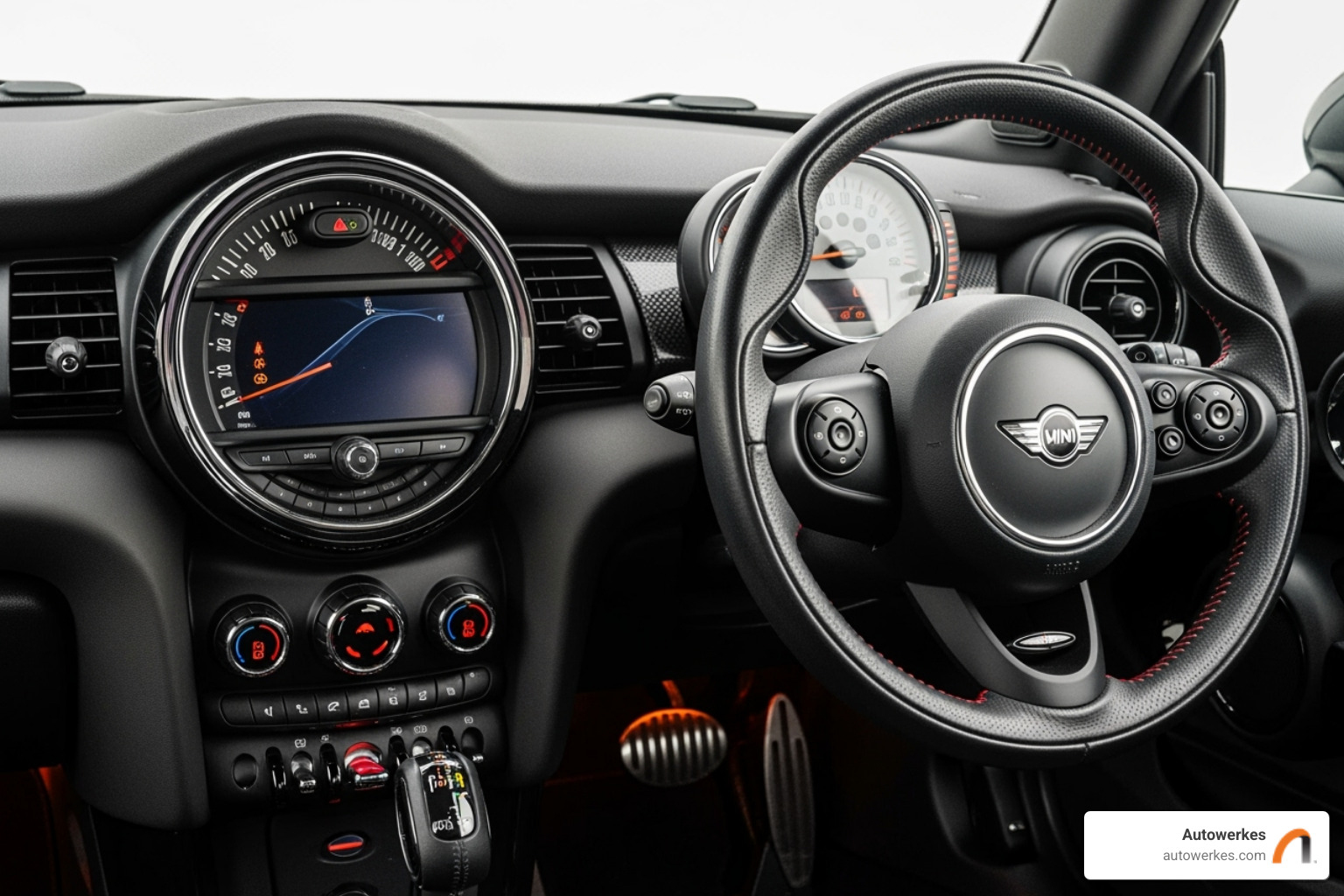
Decoding Your Mini's Electrical Gremlins
When your Mini Cooper starts acting strange, often the first suspect is its electrical system. Mini Cooper electrical issues can be tricky. Here are some of the most common problems owners face:
- Battery Drain: Your car struggles to start or loses power when off.
- Window & Locking Problems: Windows don't go up/down, or central locking fails.
- Dashboard & Light Malfunctions: Lights dim, flicker, or warning lights come on unexpectedly.
- Intermittent Power Loss: The car might go completely dead, then mysteriously revive.
- Sensor Failures: Issues with tire pressure monitoring or other sensors.
Modern Mini Coopers are packed with advanced technology. This means their electrical systems are incredibly complex. What might seem like a small glitch can sometimes be a sign of a bigger "gremlin" lurking. Owners often describe random parts of the car "shutting off here and there."
Understanding these systems is key. A simple problem can sometimes feel like a huge headache. That's why knowing the signs and seeking the right diagnosis is so important.
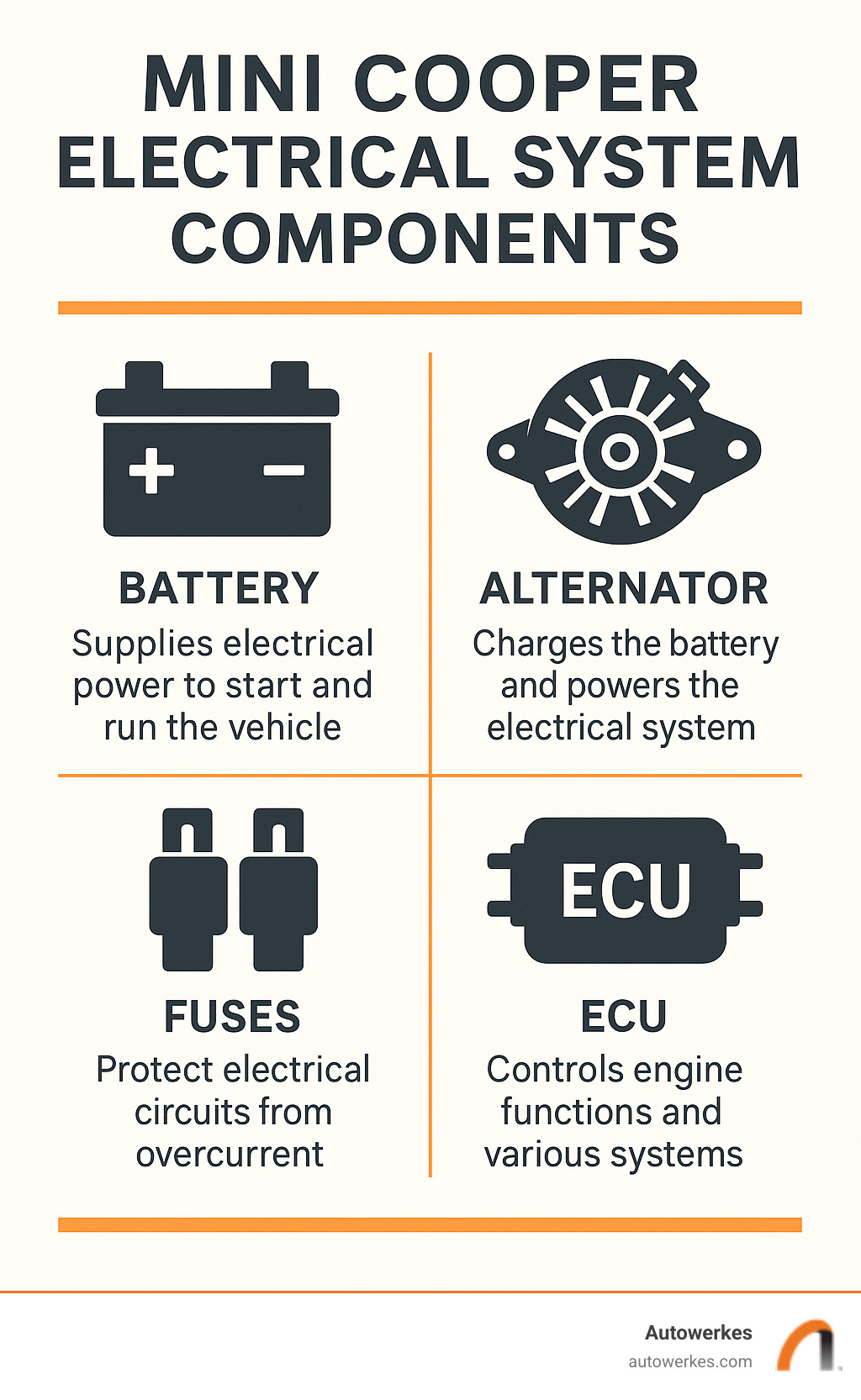
Mini cooper electrical issues definitions:
Diagnosing Common Mini Cooper Electrical Issues
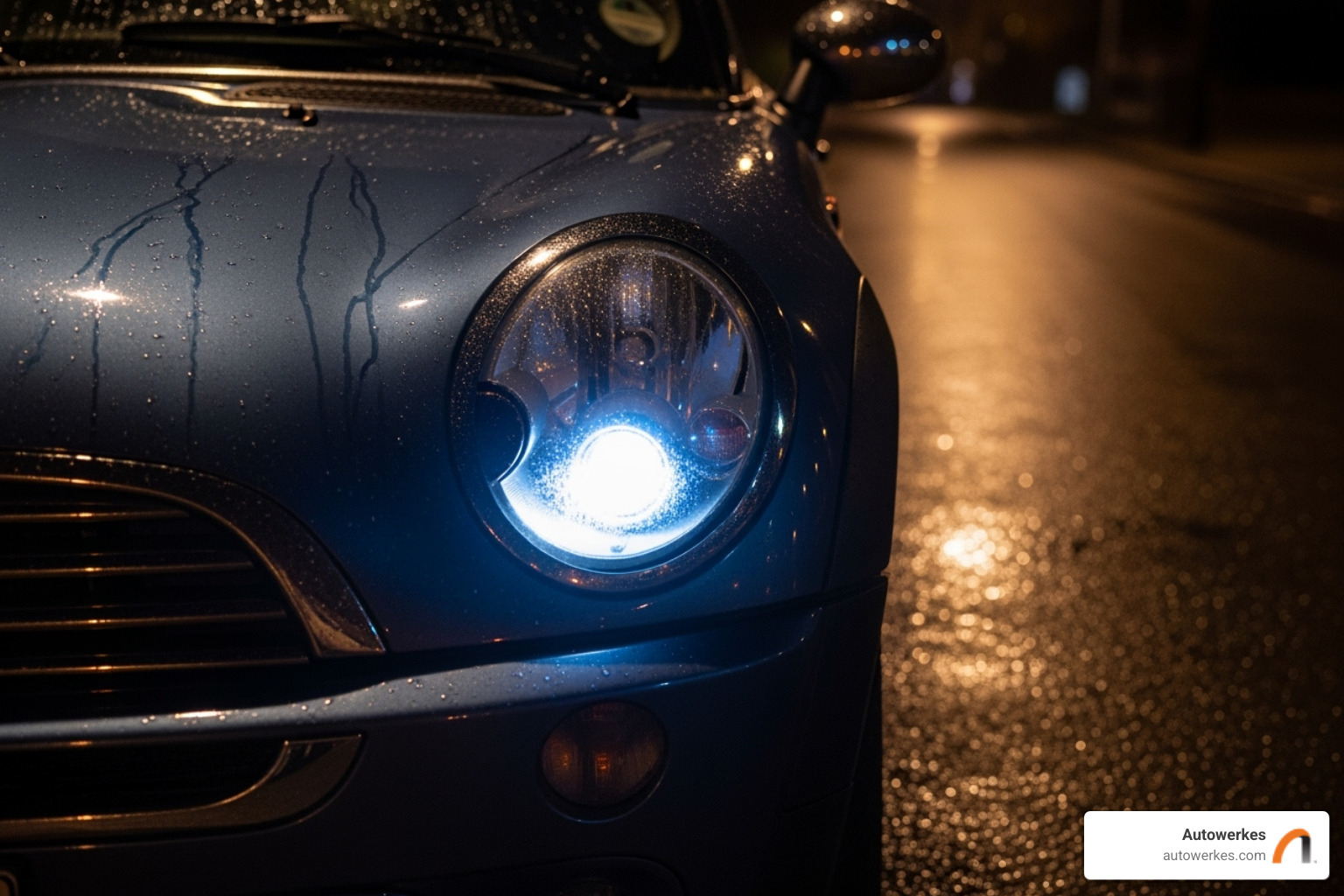
Does your beloved Mini suddenly seem to have a mind of its own? Maybe you're experiencing strange electrical quirks or even an intermittent power loss. These are often strong hints that something's not quite right with its complex electrical system. Mini Cooper electrical issues can pop up in many forms, from just a small annoyance to a bigger problem that affects safety. We've seen it all here at Autowerkes, and usually, these issues come down to a few common culprits.
Think of things like battery problems that leave you stranded, or alternator failure that stops your Mini from charging. Sometimes, it's more subtle, like issues with the Body Control Module (BCM) or even just water ingress finding its way into sensitive areas. Knowing these common problems and their symptoms is the very first step to getting your Mini back to its peppy, reliable self. When things get complicated, our advanced diagnostic procedures help us get to the bottom of the problem quickly. You can dive deeper into how we tackle tricky vehicle issues by exploring More info about our advanced diagnostic procedures.
Telltale Signs: Symptoms of an Electrical System Malfunction
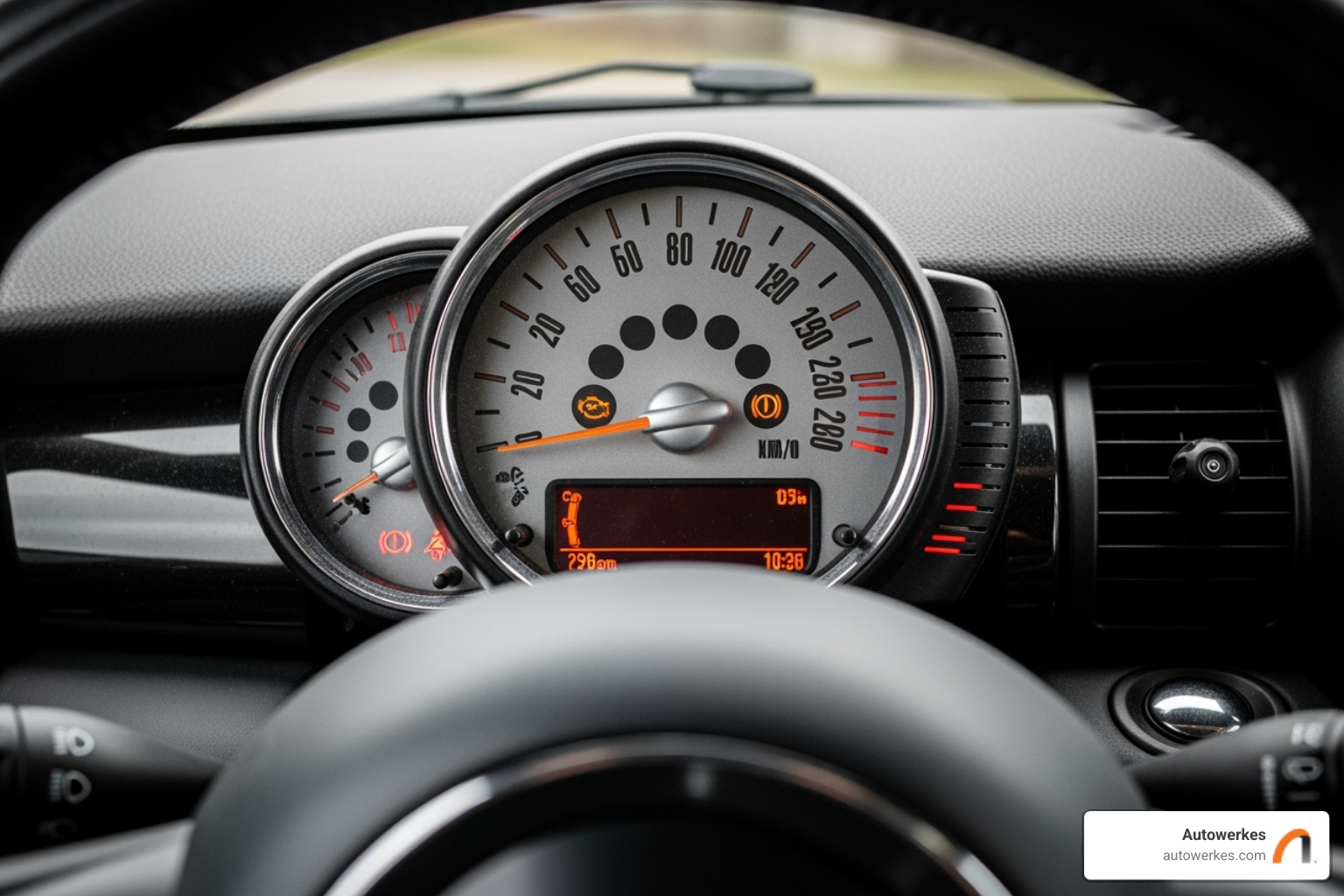
Your Mini Cooper is usually pretty good at giving you clues when something's off, especially with its electrical system. Spotting these "telltale signs" early can really help prevent small problems from becoming big headaches.
One common symptom we often see is dimming headlights or interior lights. This can mean your battery is struggling, or your alternator isn't doing its job. If your Mini's engine struggles to crank or won't even start, that's a classic sign of a dead or dying battery. You might also notice a sputtering engine. While this can sometimes be a fuel issue, it can also point to electrical problems affecting how your engine gets spark or fuel.
Another clear sign? Repeatedly blown fuses. Fuses are like tiny guardians for your car's circuits. If they keep blowing, it means something is drawing too much power, like a short circuit or a part that's failing. And if you ever catch the smell of melting plastic—that distinct electrical burn odor—it's a serious red flag. This means wires are overheating, and you need to get it checked right away.
Beyond the engine, pay attention to your comfort features. Malfunctioning power windows or locks are frequent complaints. Imagine your window going down on its own, or your central locking refusing to work! You might also experience your radio, speedometer, or tachometer cutting out, or your Mini getting stuck in "limp mode" with the "car on lift" symbol lit up. Even small things like fog lights staying on after you've turned the car off, or your clock resetting, can be quirky signs of deeper Mini Cooper electrical issues. If you see unexplained warning lights on your dashboard, like the battery light or a general "car on lift" symbol, your Mini is definitely trying to tell you something. When many different systems seem to be acting up, it often points to a complex electrical problem.
The Usual Suspects: Frequent Failure Points in Your Mini
So, what exactly causes these frustrating Mini Cooper electrical issues? After years of working with these amazing cars, we've pinpointed a few "usual suspects" that are often behind these problems.
Let's start with the heart of the system: the battery and charging components. Battery drainage is a super common complaint, especially if your Mini sits for a while. This can get worse if you have faulty battery connections that are loose or corroded. A healthy battery should read about 12.6 volts when the car is off. With the engine running, your car's charging system should keep the voltage between 13.7 and 14.7 volts. If your readings are lower, it often means there are alternator voltage issues or the voltage regulator isn't working right. Basically, your battery isn't getting the power it needs to stay charged.
One of the most famous culprits, especially in older Mini models, is water damage to the Body Control Module (BCM). This module is like your Mini's electrical brain, controlling everything from your lights and central locking to power windows. Unfortunately, it's often located in a spot where it can get wet, like near the floor. We've seen many cases where sunroof drain leaks or a bad windshield seal lets water drip right onto this vital part. This can cause all sorts of random and intermittent electrical problems. A Mini owner once shared their story about random radio and dashboard issues, which turned out to be from dampness in the BCM. You can read about A user's experience with a similar electrical issue for a real-life example.
It's not just water, though. General faulty wiring harnesses can lead to many headaches. Over time, wires can fray, connections can loosen, or corrosion can set in. This messes with the flow of electricity to different parts of your Mini. Also, the footwell module is another area known to be sensitive to moisture, causing various electrical glitches. Sometimes, even simple aftermarket additions can cause complex issues, showing how delicate your Mini's electrical system can be!
Your First Look: DIY Troubleshooting for Mini Cooper Electrical Issues
Before you rush to the shop, there are a few simple checks you can do yourself to help figure out what's going on with your Mini's electrical system. Think of it as putting on your detective hat!
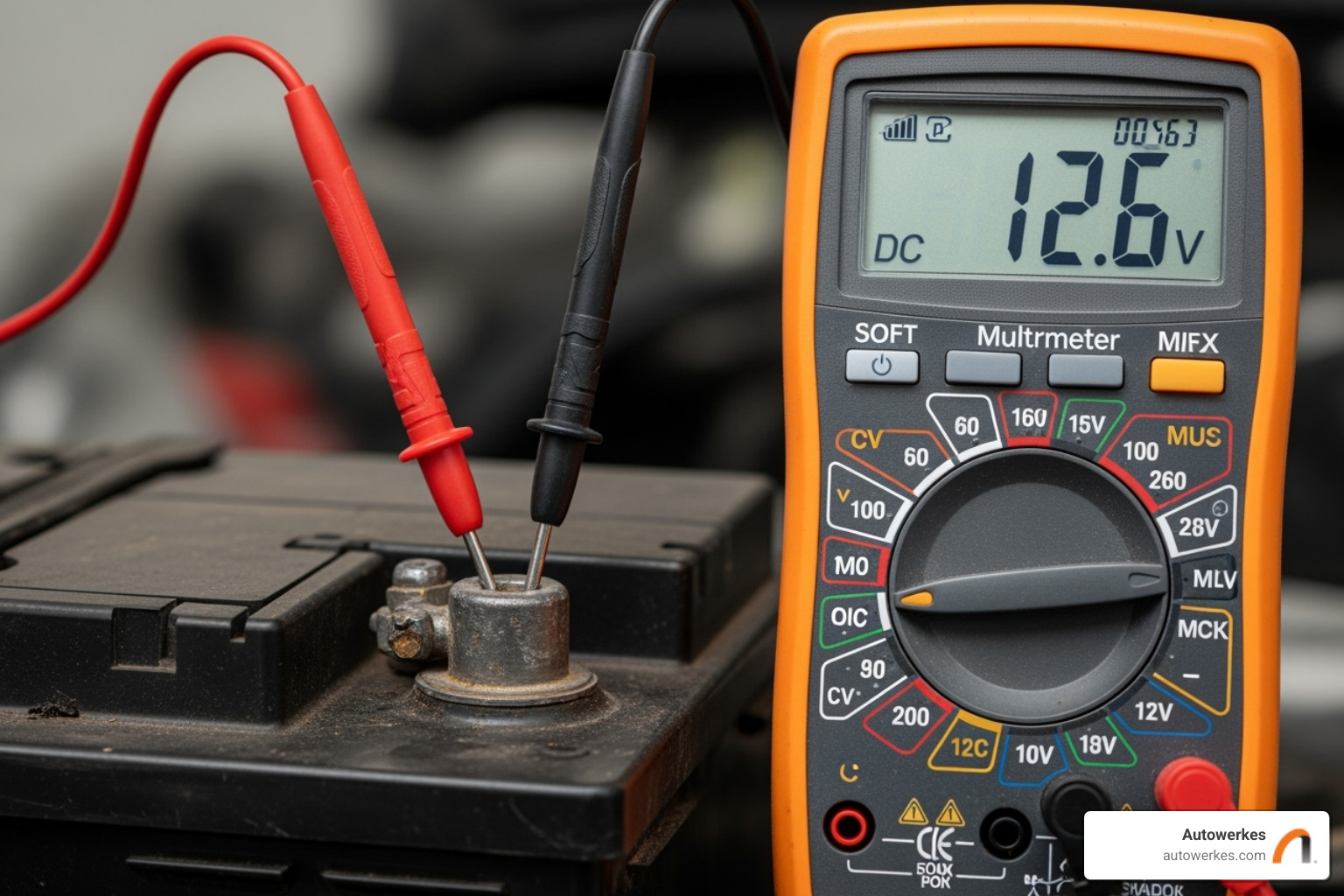
Here's a list of checks we recommend trying:
- Check Battery Voltage: This is your starting point. Grab a multimeter and test your battery. When the car is off, a healthy battery should read around 12.6 volts. With the engine running, your alternator should be charging the battery, so the voltage should be between 13.7 and 14.7 volts. If your readings are outside these ranges, your battery might be dying, or your alternator isn't working as it should.
- Inspect Fuse Box for Blown Fuses: Your Mini has several fuse boxes. Check your owner's manual to find them (they're usually under the dashboard or in the engine compartment). Each fuse protects a specific circuit. Look for fuses where the wire inside is broken, or there are signs of discoloration. If you find a blown fuse, replace it with one that has the exact same amperage. If it blows again right away, you likely have a deeper problem like a short circuit.
- Examine Battery Terminals for Corrosion: Pop the hood and take a good look at your battery terminals. White, powdery buildup (that's corrosion!) can stop a good electrical connection. You can clean this off with a wire brush and a mix of baking soda and water. Make sure the terminals are tight and secure afterward.
- Check for Damp Carpets Near the Footwells: This is super important if you suspect water is getting in. Feel the carpet in both the driver and passenger footwells, especially close to the firewall. If it's damp, it's a strong sign of a water leak, which could be harming your BCM or footwell module. Try to find where the leak is coming from (like blocked sunroof drains or a bad windshield seal).
- Use an OBD-II Scanner for Basic Codes: An OBD-II scanner can read basic "Check Engine Light" codes. While these won't catch every Mini-specific error, they can give you a starting point if your car is showing codes related to sensors or general system problems. Just remember, many electrical issues might not trigger an OBD-II code, as these scanners mostly focus on emissions-related faults.
These steps can help you find obvious issues or rule out simple fixes. However, always be careful when working with your car's electrical system. If you're not sure about something, it's always best to reach out to professionals.
When to Call the Professionals for Your Mini
Sometimes, those Mini Cooper electrical issues are just too tricky to catch on your own. You've tried the DIY tips, checked the fuses, and peered under the hood, but those electrical gremlins are still playing hide-and-seek. If you're facing persistent issues despite your best efforts, or if the problem feels too complex, it's definitely time to call in the professionals.
Modern Minis are packed with incredibly sophisticated electrical systems. Diagnosing their problems often requires specialized tools and expertise that goes far beyond a basic OBD-II scanner. Things like ECU programming or replacing complex modules are not DIY tasks. These jobs need specific software, precise knowledge, and the right equipment to ensure everything works perfectly.
Beyond the complexity, ignoring certain electrical problems can pose significant safety risks. Imagine unexpected power loss while driving, or even the hidden danger of fire hazards if wiring issues are left unaddressed. Your Mini's well-being, and your own, are too important to leave to chance.
At Autowerkes, we truly understand the unique intricacies of Mini Cooper vehicles. Our team is fully equipped to handle everything from intricate wiring repairs to advanced module diagnostics. For comprehensive solutions to your Mini's electrical woes, you can find More info about our electrical repair services.
Why Professional Diagnosis is Crucial for Your Mini
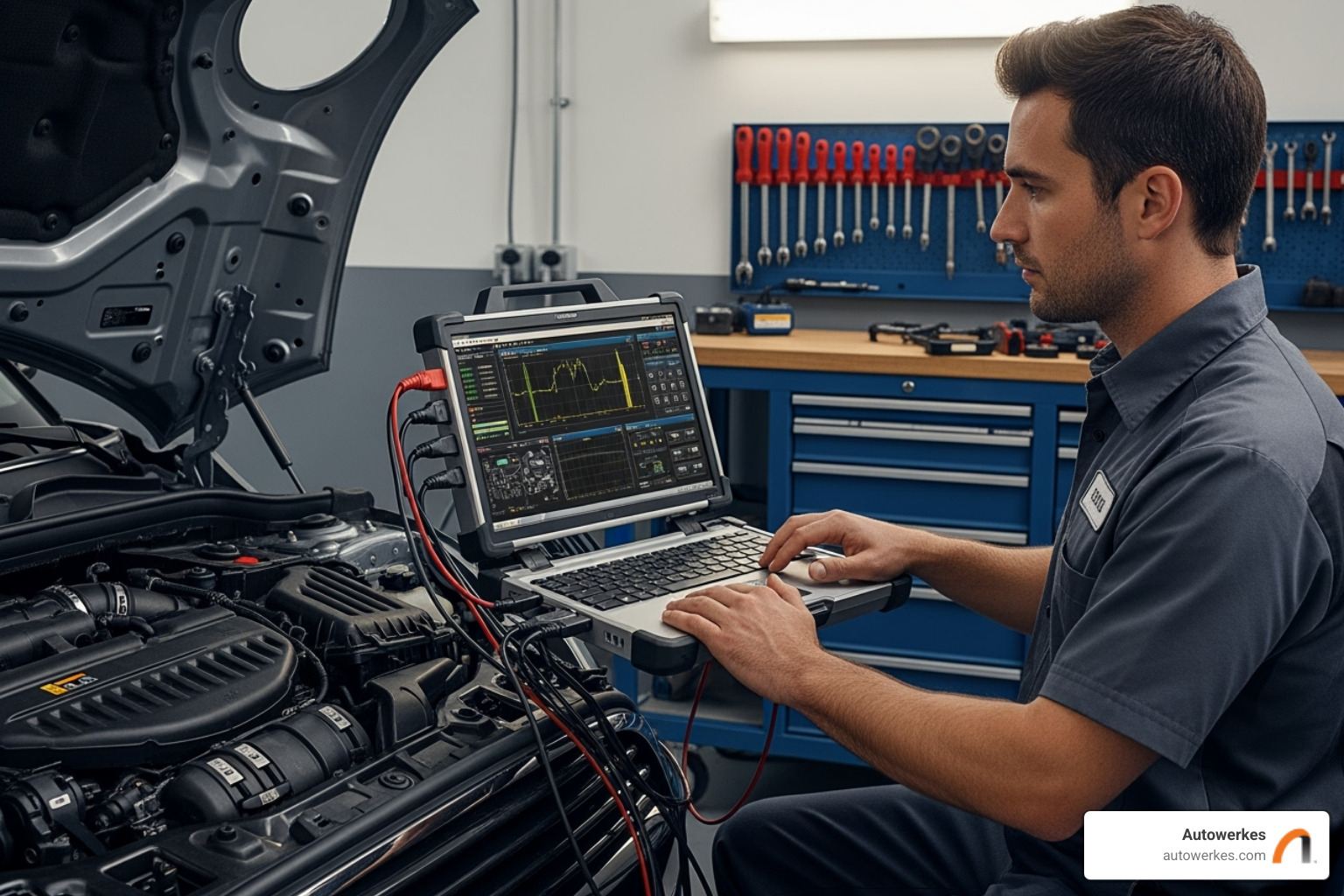
While your DIY troubleshooting can offer a good starting point, there's a big reason why professional diagnosis is crucial for your Mini. Think about the limitations of OBD-II scanners. These generic tools primarily read basic, emissions-related codes. They often miss the deeper, proprietary, manufacturer-specific error codes that Mini Coopers generate. These hidden codes are often the key to truly pinpointing the exact source of a complex electrical issue.
Our skilled technicians have access to proprietary BMW/Mini error codes using specialized diagnostic computers. These advanced tools let us dig deep into your Mini's various control modules, pulling out detailed fault information that a standard scanner simply can't see. This ability is essential for pinpointing the root cause vs. symptoms. For example, if your Mini goes into "limp mode," it might seem like an engine problem. But a professional diagnostic tool could reveal a deeper electrical issue affecting a sensor or a module, not the engine itself.
Trying to fix complex electrical problems without the right tools and knowledge can lead to preventing further damage to sensitive electronics. Mini Cooper systems are highly integrated. An incorrect repair, or even a wrong diagnosis, can accidentally harm other expensive components. We have the expertise to safely and effectively diagnose and repair these intricate systems. This ensures your Mini gets the precise care it needs without any unintended consequences, keeping it running smoothly for miles to come.
Your Next Steps for Resolving Mini Cooper Electrical Issues
We've covered a lot about Mini Cooper electrical issues, from the common symptoms like dimming lights and malfunctioning windows, to the usual culprits like battery problems, water-damaged BCMs, and faulty wiring. The most important takeaway is the importance of prompt repair. Ignoring these electrical gremlins can lead to more costly breakdowns, shorten your Mini's battery life, and even create safety hazards. Don't let a small issue become a big headache!
At Autowerkes, we pride ourselves on our expertise with complex European vehicle electronics. Our team is specially trained and equipped to handle the unique demands of Mini Coopers. We ensure accurate diagnosis and lasting repairs. We know these cars inside and out, and we're truly passionate about keeping them running smoothly for you.
Whether you're in Huntington Beach, Newport Beach, Fountain Valley, Palos Verdes, Manhattan Beach, Los Angeles, Irvine, Mission Viejo, Laguna Beach, or San Diego, our commitment is to provide top-tier service for your luxury vehicle. We invite you to experience the difference of expert care.
For expert diagnosis and repair of your Mini Cooper in Huntington Beach, schedule your service today. We're here to help you unplug those electrical gremlins and get your Mini back to its charming, reliable self.

.svg)




